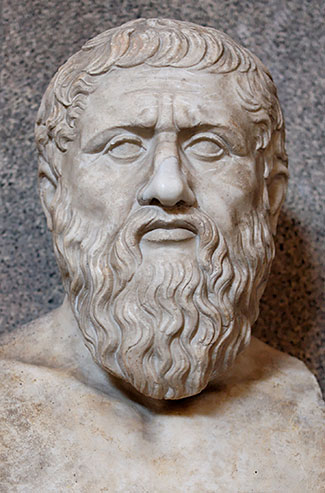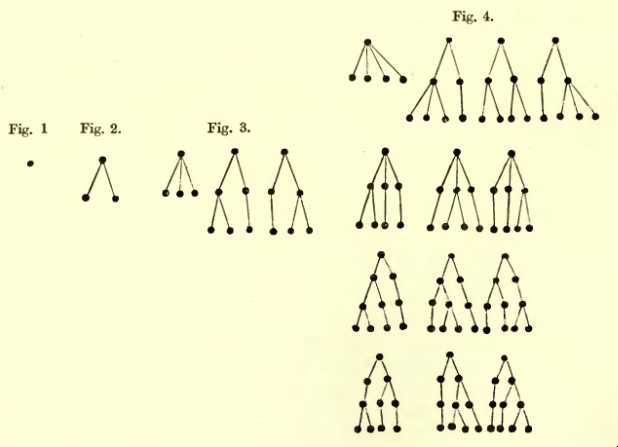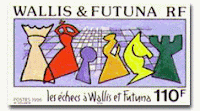By Graham Priest
If you go into a mathematics class of any university, it’s unlikely that you will find students reading Euclid. If you go into any physics class, it’s unlikely you’ll find students reading Newton. If you go into any economics class, you probably won’t find students reading Keynes. But if you go a philosophy class, it is not unusual to find students reading Plato, Kant, or Wittgenstein. Why? Cynics might say that all this shows is that there is no progress in philosophy. We are still thrashing around in the same morass that we have been thrashing around in for over 2,000 years. No one who understands the situation would be of this view, however.
So why are we still reading the great dead philosophers? Part of the answer is that the history of philosophy is interesting in its own right. It is fascinating, for example, to see how the early Christian philosophers molded the ideas of Plato and Aristotle to the service of their new religion. But that is equally true of the history of mathematics, physics, and economics. There has to be more to it than that—and of course there is.

Plato, Museo Pio-Clementino, Vatican
Great philosophical writings have such depth and profundity that each generation can go back and read them with new eyes, see new things in them, apply them in different ways. So we study the history of philosophy that we may do philosophy.
One of my friends said that he regards the history of philosophy as rather like a text book of chess openings. Just as it is part of being a good chess player to know the openings, it is part of being a good philosopher to know standard views and arguments, so that they can pick them up and run with them.
There is a lot of truth in this analogy, but it sells the history of philosophy short as well. Chess is pursued within a fixed and determinate set of rules. These cannot be changed. But part of good philosophy (like good art) involves breaking the rules. Past philosophers may have played by various sets of rule; but sometimes we can see their projects and ideas can fruitfully (perhaps more fruitfully) be articulated in different frameworks—perhaps frameworks of which they could have had no idea—and so which can plumb their ideas to depths of which they were not aware.
Such is my view anyway. It is certainly one that I try to put into practice in my own teaching and writing. I find that using the tools of modern formal logic is a particularly fruitful way of doing this. Let me give a couple of examples.
One debate in contemporary metaphysics concerns how the parts of an object cooperate to produce the unity which they constitute. The problem was put very much on the agenda by the great 19th century German philosopher and logician Gottlob Frege. Consider the thought that Pheidippides runs. This has two parts, Pheidippides and runs. But the thought is not simply a list, <Pheidippides, runs>. Somehow, the two parts join together. But how? Frege’s answer (we do not need to go in the details) ran into apparently insuperable problems.
Aristotle went part of the way to solving the problem over two millenia ago. He suggested that there must be something which joins the parts together, the form (morphe), F, of the proposition. But that can be only a start, as a number of the Medieval European philosophers noted. For <Pheidippides, F, runs> seems just as much a list as our original one, so there has to be something which joins all these things together—and we are off on a vicious infinite regress.
The regress is broken if F is actually identical with Pheidippides and runs. For then nothing is required to join F and Pheidippides: they are the same. Similarly for F and runs. But Pheidippides and runs are obviously not identical. So identity is not, as logicians say, transitive. You can have a=b and b=c without a=c. It is not clear that this is even a coherent possibility. Yet it is, as modern techniques in a branch of logic called paraconsistent logic can be used to show. I spare you the details.
A quite different problem concerns the topic in modern metaphysics called grounding. Some things depend for their existence on others. Thus, a chair depends for its existence on the molecules which are its parts; these, in turn, depend for their existence on the atoms which are their parts; and so on.
It contemporary debates, it is standardly assumed that this process must ground out in some fundamental bedrock of reality. That idea was attacked by the great Buddhist philosopher Nāgārjuna (c. 2c CE), with a swathe of arguments. Ontological dependence never terminates: everything depends on other things. Again, it is not clear, Nāgārjuna’s arguments notwithstanding, that the idea is coherent. If everything depends on other things, we have an obvious regress; and, it might well be thought, the regress is vicious. In fact, it is not. It can be shown to be coherent by a mathematical model employing mathematical structures called trees, all of whose branches may be infinitely long. Again, I spare you the details.

Of course, in explaining my two examples, I have slid over many important complexities and subtleties. However, they at least illustrate how the history of philosophy provides a mine of ideas. The ideas are by no means dead. They have potentials which only more recent developments—in the case of my examples, in contemporary logic and mathematics—can actualize. Those who know only the present of philosophy, and not the past, will never, of course, see this. That is why philosophers study the history of philosophy.
Graham Priest was educated at St. John’s College, Cambridge, and the London School of Economics. He has held professorial positions at a number of universities in Australia, the UK, and the USA. He is well known for his work on non-classical logic, and its application to metaphysics and the history of philosophy. He is author of One: Being an Investigation into the Unity of Reality and of its Parts, including the Singular Object which is Nothingness.
Subscribe to the OUPblog via email or RSS.
Subscribe to only philosophy articles on the OUPblog via email or RSS.
Images: Bust of Plato, Public Domain via Wikimedia Commons. Image of a graph as mathematical structure showing all trees with 1, 2, 3, or 4 leaves, Public Domain via Wikimedia Commons.
The post Philosophy and its history appeared first on OUPblog.

It’s heavy work in the world of book publishing at present, with Hachette Book Group confirming that they are one of the unlucky publishers that will miss out on payments from the beleaguered Borders, Inc USA, as the bookstore closes a major book distribution plant in the mid-west costing 300 jobs.
Now for the second time in four months, like a game of chess, the leadership has changed at the book publisher of novels by such distinguished authors as Sen. Edward Kennedy and Christopher Hitchens.
Author-editor-producer Susan Lehman has been forced out as publisher of Twelve after taking over in September. Twelve is an imprint of Grand Central Publishing, which announced Jan. 11 in an company email shared with The Associated Press that associate publisher Cary Goldstein will replace Lehman effective immediately.
“Susan Lehman is an extremely insightful, creative and talented editor,” Grand Central executive vice-president and publisher Jamie Raab said in the email. “Unfortunately, the role of publisher just wasn’t the perfect fit.”
Lehman had yet to acquire any new books for Twelve, designed to release just 12 books a year, one every month. But Raab told the AP that obtaining new books was not a factor that toys in her decision and otherwise declined to offer a specific reason beyond saying that being a publisher is “an all-encompassing job” that can take years to learn.
“Had I had more time, I’m certain I could have failed on my own demerits,” Lehman wrote in an email to the AP. “But 12 weeks isn’t enough time to do even that. It’s a wonderful imprint. I had lined up great play chess and non-fiction writers for terrific books I hope will find their way into print. Cary Goldstein has a great job and I wish him well.”
Lehman has worked in a variety of christian book publishers fields, from editing at Riverhead Books to producing television documentaries.
Jonathan Karp started Twelve in 2005, but left in June to head the flagship trade imprint of Simon & Schuster. Twelve’s bestsellers include Kennedy’s True Compass, Hitchens’ Hitch-22 and Sebastian Junger’s War.
Grand Central is a division of the Hachette Book Group – also associated with major children’s publishers and toy shops in New York.

I’m all about video games in libraries. I have a Wii and a Playstation 2 at my library, and have been having gaming programs a few times a month since I started last summer. It is certainly fun and brings in the teens, but recently I decided to try something new: board games and card games. I called it Low Tech Gaming. The program had a good turnout and was so much fun, that I’ve decided to add it to the Friday afternoon rotation.
The games I used: Apples to Apples, Jenga, Chicopoly and chess. Several board game titles are available from Demco, which is where I purchased some of these. The others my library had. Click through for details of our gaming session.
I borrowed a chess set from our Children’s room. I was impressed by how many of the teens in attendance knew how to play and gravitated toward it on their own. It had more boy appeal than girl appeal in this group, but I also had more boys than girls at the program.
Chicopoly is a Monopoly game based on our town, Chicopee. Instead of real estate squares like Boardwalk and Park Place, it is populated with local businesses. The object is to get customers rather than houses and hotels. I’ve seen games like this for other towns. Maybe one exists for yours. It surprised me that this was so appealing to my teens, but, aside from a bit of complaining about the money, they knew how to play. Monopoly is a long game, so they didn’t end up finishing in our hour and a half program session, but they still enjoyed the game.
It was a little tough to get a game of Apples to Apples started because I was having trouble explaining it. Each player gets seven red card with nouns on them. For each turn there is a green card with an adjective on it. Players must use one of the cards in their hand to be described by that adjective. Each player takes a turn being the judge, who decides which noun fits the adjective best, usually based on humor. You end up with statements like: Godzilla is delicate. One boy summed it up nicely saying it was comparing stupid things to other stupid things, which worked for the group and got the game going.
The hit of the day was Jenga. You make a tower of groups of three blocks in alternating directions, the object is to pull blocks out of the tower without knocking it down. Two boys were calling it epic Jenga and creating the highest, most precarious towers they could. Their deep concentration over the pulling of each block was impressive and amusing. It drew an audience of some of the other teens in the room.
This was just a small sample of games. There are so many others that would work for this kind of program. There was a request for card games, so next time I’ll bring regular playing cards, Uno, and Phase Ten. I would also like to try out some of the more involved board games that I have played, like Settlers of Catan or Power Grid (or maybe even Arkham Horror, one of my favorites, but it’s quite time consuming). I often hear about new games from my friends, or from browsing the gaming sections in comic book stores. Another good resource is this blog: Library Gamer.
Something I particularly enjoyed about this program, which was different from our high tech gaming days, was all of the eye contact being made, between teens and with me. It was a new kind of connection. I felt like I got to know the participants better than I do when we’re playing video games.
While I continue to dig out from under a pile of work, please enjoy this brief interlude. And yes, it IS better than Wizard's chess!

You'd think that working at a bookstore, I'd be at no loss for good books to read, but every once and a while I hit a slump, and the last few weeks have been just that. At first, I thought it was the books that I was reading (why can't they read my mind, and give me exactly what I want right this very second, even if I don't know what that is? gosh), but after a while I came to the conclusion that it was actually just me, being lazy, or being unwilling, or some such excuse. Whatever the case, I'd picked up and put down over 6 titles, and not for lack of trying with them, either.
But 3 of my coworkers have all been recommending City of Thieves by David Benioff (which is now in paperback) and I'm glad that I finally listened. It was exactly the quickly paced, escapist, pleasingly cinematic novel I needed to pull me out of my reading slump. And it's a great book to recommend to older teens, not just for its accessibility, but also since it's a strong, contemporary coming of age story. For those interested in WWII, it's a good choice, and accessible enough for reluctant readers.
After being arrested for looting the corpse of a German soldier, the narrator, Lev, is sent on a wild chicken chase with a charming deserter named Kolya to find a dozen eggs for a Soviet colonel's daughter's wedding cake. If they succeed, their lives are saved. If not, you get the idea. Their search takes them beyond Leningrad, and into enemy territory. In the mean time, the unlikely duo create an unexpectedly sentimental bond.
And it's possibly the most bromantic book I've ever read.
Though sometimes all the maleness of the novel got to me (if you don't have the equipment, it can be boring to peruse the manual) the friendship forged between the two main characters was always entertaining. Benioff certainly has a talent for writing clever exchanges, perfectly suited for film, if not always so in novel form. His dialog heavy style makes the book move along at a nice clip, and the plot does as well, with more intelligence than one expects from a page turner.
Benioff may not be ready to stand next to Vonnegut and Heller in the category of tragi-comic WWII stories, but he's certainly crafted an intensely entertaining novel, so good, it could pull my head out of my own
You get the idea.

I am in the process of moving my university web pages to a
new site. As I work through the many, many pages I have created over the years, one old favorite was crying out for attention. I spent time today updating it, so if you have any interest in chess, quotes on chess, chess in books, movies and more, please check out my
chess page.








Wicked cool, hope you make it out of the pile. Have a great day.
Thank you so much for sharing this! The boys and I watched it three times in a row!
It was so beeping funny!